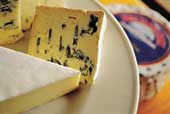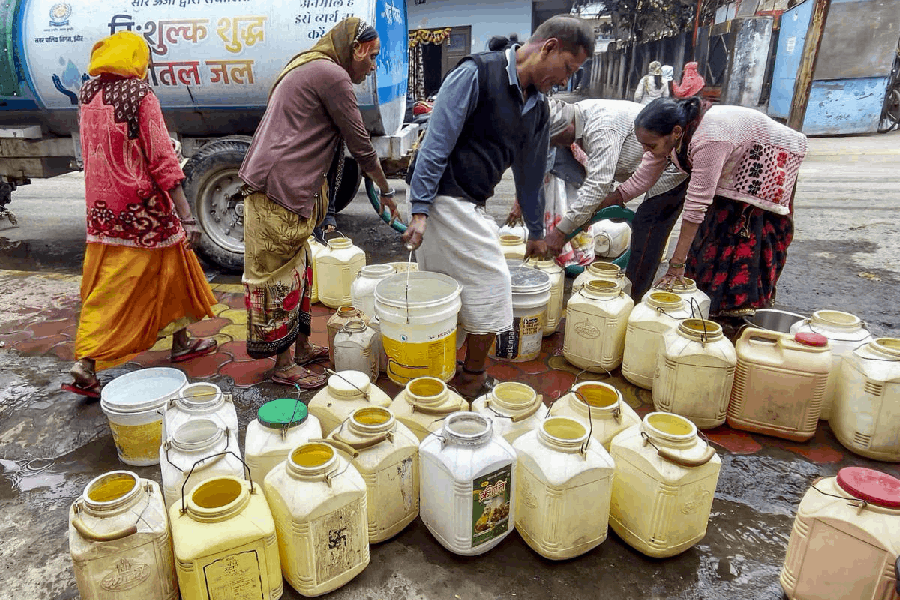 |
| Food for thought: Some cheese samples contained yeast and mould |
Do you know of a virtually-challenged mother who kept cheese near the computer to feed the mouse? Jokes apart, cheese is a favourite with many Indian households today, though not yet with the computer mouse. Much used in salads, sandwiches, pizzas, baked dishes and even parathas, you bet it’s yummy and appetising. But then, how safe is it?
To find out, Consumer Education and Research Society (CERS), Ahmedabad, tested 11 brands of processed cheese to see how they fared in terms of quality. The disturbing findings included a very high sodium-content in all the brands, and microbial contamination in two brands.
Salt is made up of sodium and chloride, and excess sodium is harmful to health as it causes high blood pressure.
Cheese can be either natural or processed. Natural cheese is made by the coagulation of milk. When natural cheese of different types and ages is heated ? with permitted emulsifiers and stabilisers ? and blended, you get processed cheese. Cheese can be hard, like cheddar and soft like the Italian cheese, mozzarella, which is used on pizzas.
Germs in Cheese
The Gazette of India: Extraordinary, June 2005, stipulates microbiological standards for cheese. The draft proposal of the Central Food Laboratory, CFTRI, Mysore, also suggests standards for microbiology.
The samples were tested for yeast and mould, total plate count, i.e. the total number of bacteria, coliforms, E. coli and salmonella. The two standards are the same for total plate count, coliforms and salmonella. According to the CFTRI standard, yeast and mould, and E. coli should be absent in 0.1 gm while the Gazette requires that they be absent in 1 gm.
CERS’s findings revealed that both Amul pizza-cheese and Dairy-licious cheese were contaminated with yeast and mould. The contamination in Dairy-licious was marginal, but very high in Amul pizza- cheese. All other products of Amul conformed to the standards. Though yeast and mould were found in Amul pizza-cheese and Dairy-licious cheese, since they are used in pizzas after being baked at high temperatures, they may not have any adverse effect on one’s health. But the product labels do not mention that they cannot be eaten raw.
As far as food spoilage is concerned, yeast and moulds are the two major contributors. Their presence indicates that the product was manufactured, packed and stored in unhygienic conditions. Eating such contaminated food can pose health hazards. It can cause gastroenteritis, dysentery, diarrhoea or typhoid, besides food poisoning. Amul requested CERS to test another batch, and the new batch was found to conform to the CFTRI standards.
Best Buy
In cubes and slices, Amul is recommended as the best buy, and in blocks, Verka. For cheese spreads too, Amul is the best buy. Though it scored two points less than Britannia, in the overall score, Amul’s price is much lower. Britannia is the best buy among the three brands of pizza-cheese.
brand value: weigh your options
All the brands were high in sodium-content. Dairy-licious showed the highest sodium-content of 2,270 mg per 100 gm, followed by Britannia cubes with 2,135 mg, Britannia slice with 1,963 mg and Amul cubes with 1,947 mg. As per the UK Food Standard Agency, if a product contains more than 500 mg of sodium per 100 gm, it is high.
There was a wide difference in the labelled value for sodium and CERS’s test findings. For instance, the label for Britannia cubes mentioned sodium to be 740 mg per 100 gm while the test found it to be 2,135 mg. In the case of Amul cubes, the labelled figure was 1,400 mg per 100 gm while the test found it to be 1,947 mg. However, all the brands conformed to the PFA Act and BIS specifications for salt, that is, three per cent of the mass.
Yeast and mould count was present in Amul pizza-cheese, mozzarella and Dairy-licious processed cheese when they should be absent as per the standard.
Except for the second sample of Amul tested, all brands conformed to the standards for total plate count, coliforms, E.Coli and salmonella.
In the sensory analysis of the cubes, Britannia scored the highest. But, among the slices, Amul topped the list. Britannia cheese-spread was preferred to Amul.
Among the brands of pizza cheese, Amul was rated the best with a score of 92 while Britannia obtained a score of 36.
Calcium in mg per 100 gm of the product was the highest in Amul cubes at 903 mg. The recommended daily intake of calcium for adults is 800 mg according to the Indian Council of Medical Research.
Amul pizza-cheese had the highest amount of protein (24 per cent of weight), followed by Verka (21 per cent), and Britannia cheese spread had the lowest amount (10 per cent).
All four samples of Britannia cubes tested were underweight. Labelled 200 gm, they weighed 191.35 gm, 193.45 gm, 193.20 gm and 195.65 gm. In contrast, the net weight samples of all Amul products were slightly above the labelled weight.










